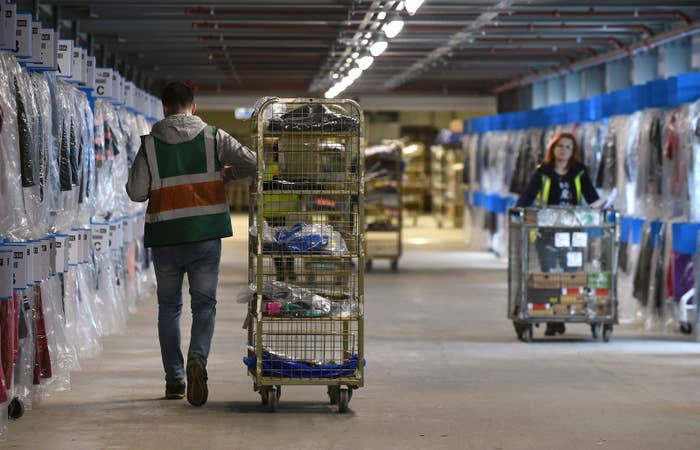
Transline, the job agency heavily criticised by MPs investigating working conditions at Sports Direct, was challenged over tax avoidance and compelled to pay hundreds of thousands of pounds in previously avoided tax, BuzzFeed News can reveal.
Company accounts show Transline held “investments in film partnerships” but HM Revenue and Customs decided it was a tax avoidance scheme and issued a bill for £370,000. The latest Transline accounts, filed late last year (covering 2014), show “advance payment notices” – known officially as Accelerated Payment Notices (APNs) – were issued by HMRC for unpaid tax from the scheme.
Film investment schemes flourished after then chancellor Gordon Brown introduced tax incentives to support the British film industry. However, some of these were soon turned into highly artificial tax avoidance schemes.
In 2012, then head of the HMRC Dave Hartnett denounced some of the leading film schemes as “scams for scumbags”. Hartnett said HMRC would “clean up on film schemes over the next few years".
A company spokesperson told BuzzFeed News: “Transline participated in a legitimate film investment. HMRC are reviewing such investments at this time, and the outcome of this is yet to determined.”
Tax avoidance is not illegal, but HMRC can issue an APN if it disputes a tax avoidance scheme under "pay now, dispute later" rules, which appear to have caught out Transline.
Earlier this week HMRC announced that it has collected £3 billion by forcing those under investigation for tax avoidance to pay up disputed tax immediately. “The vast majority of avoidance schemes just don’t work,” said the financial secretary to the Treasury, Jane Ellison MP.
Details of the company’s tax problems come as it faces severe criticism from MPs for its role with Sports Direct, which used Transline as one of two recruitment agencies.

MPs on the Commons business select committee said Transline’s evidence to their inquiry on Sports Direct was “woefully poor”, and found the company had “deliberately misled” the committee. Transline did “not seem to have a basic understanding of employment law and practices”, said the MPs, who concluded that it was “irresponsible, if not reckless” for Sports Direct to use such a firm.
The allegation of misleading the parliamentary committee centred on the company’s evidence about obtaining a licence from the Gangmasters Licensing Authority – a requirement for employment agencies in the agricultural or shellfish industries introduced following the deaths of 21 Chinese cockle pickers in Morecambe Bay in 2004.
In its evidence to MPs, Transline claimed it had “decided not” to get a licence. But the authority told MPs that in fact, it had refused to give Transline a licence in 2014 because it did not pass a “fit and proper person” test.
In its statement to BuzzFeed News, Transline again denied misleading the MPs, insisting: “No incorrect or misleading information was given.”
The committee also said it was concerned about financial pressure put on workers paid the minimum wage by Sports Direct. Some of the workers, often migrants, did not have bank accounts so Transline arranged for them to have prepaid credit cards from a finance company.
But the low-paid workers paid a high price for the card, the MPs found: “Workers are charged a £10 one-off fee, a monthly management fee of £10 per month for this facility, 75p for cash withdrawals.” Transline then got payments from the credit card company of £3 per card issued and £1.96 per week for each card user.
Despite the tax issue and the criticism from MPs, Transline is doing well financially. It was founded by joint chief executives Paul Beasley and Jon Taylor in 1989, and, thanks to the expanding use of contract and casual staff, has grown massively.
The company, which is owned by the Beasley family, now has a £178 million turnover. The latest accounts show they have usually paid their top director – presumably either Beasley or Taylor – around £500,000 a year, although this dropped to just £177,000 in the latest year.
